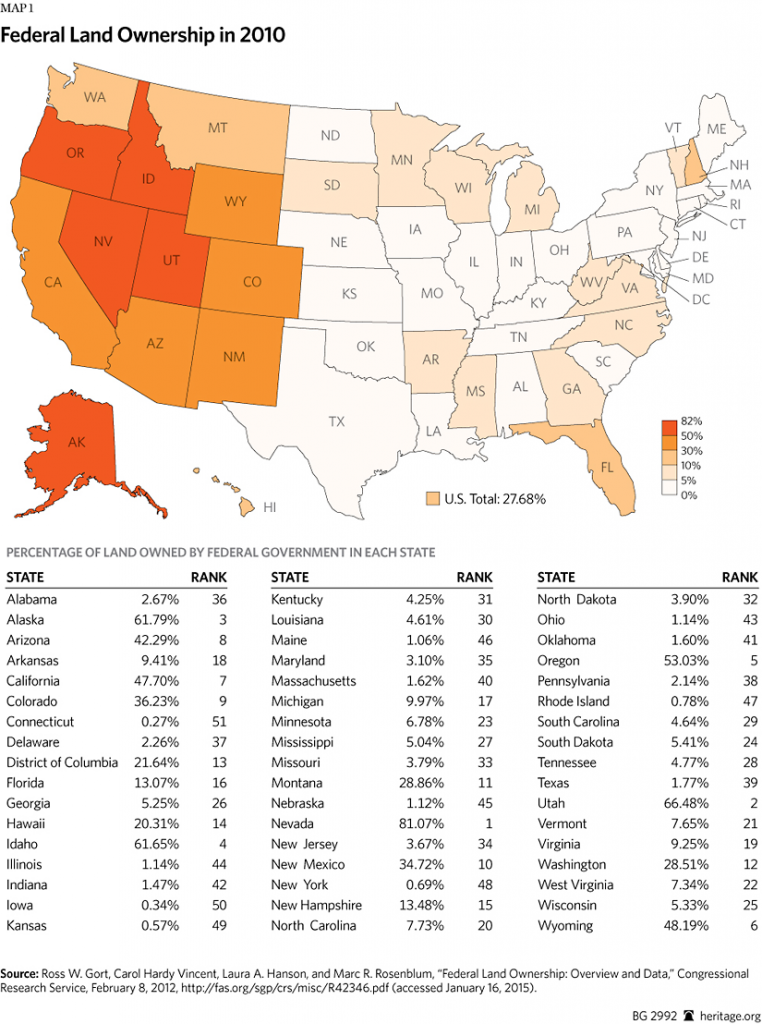Study: Government’s Control of Land Is Hurting Oil Production, Job Growth
Ben Smith /
Current government regulations imposed by the Bureau of Land Management are harming energy production and holding back the U.S. economy, a new study reveals.
“While federally owned lands are also full of energy potential, a bureaucratic regulatory regime has mismanaged land use for decades,” write The Heritage Foundation’s Katie Tubb and Nicolas Loris.
The report focuses on the Federal Lands Freedom Act, introduced by Rep. Diane Black, R-Tenn., and Sen. James Inhofe, R-Okla. It is designed to empower states to regain control of their lands from the federal government in order to pursue their own energy goals. That is a challenge in an oil-rich state like Colorado.
“We need to streamline the process as there are very real consequences to poor [or nonexistent] management,” Tubb, a Heritage research associate, told The Daily Signal.
“Empowering the states is the best solution. The people who benefit have a say and can share in the benefits. If there are consequences, they can address them locally with state and local governments that are much more responsive to elections and budgets than the federal government.”
Emphasizing the need to streamline the process, Tubb pointed to the findings in the new report.
“The Bureau of Land Management estimates that it took an average of 227 days simply to complete a drill application,” Tubb said.
That’s more than the average of 154 days in 2005 and more than seven times the state average of 30 days, according to the report.
The report blames this increase in the application process on the drop in drilling on federal lands.
“Since 2009,” Tubb and Loris write, “oil production on federal lands has fallen by nine percent, even as production on state and private lands has increased by 61 percent over the same period.”
Despite almost “43 percent of crude oil coming from federal lands,” government-owned lands have seen a 13-point drop in oil production, from 36 percent to 23 percent.
The report also examines the recent oil-related job boom.
“Job creation in the oil and gas industry bucked the slow economic recovery and grew by 40 percent from 2007 to 2012, in comparison to one percent in the private sector over the same period,” according to the report.
That boom has had a big impact on jobs.
“Energy-abundant states like Colorado and Alaska would stand to benefit tremendously. We’ve seen oil and natural gas production increase substantially in Colorado over the past eight years, bringing jobs and economic activity to the state,” said Loris, an economist who is Heritage’s Herbert and Joyce Morgan fellow.
Tubb cautioned that any change will happen slowly. “The federal government likely will not release the land that easily.”
Loris agreed, noting the long-running debate about the Arctic National Wildlife Refuge.
“It was no surprise that the Alaskan delegation was up in arms when the administration proposed to permanently put ANWR off limits to energy exploration,” Loris told The Daily Signal. “Many in the Alaskan delegation and Alaskan natives, including village of Kaktovik—the only town in the coastal plain of ANWR, support energy development.”
“We are putting power to the people,” Tubb concluded.

